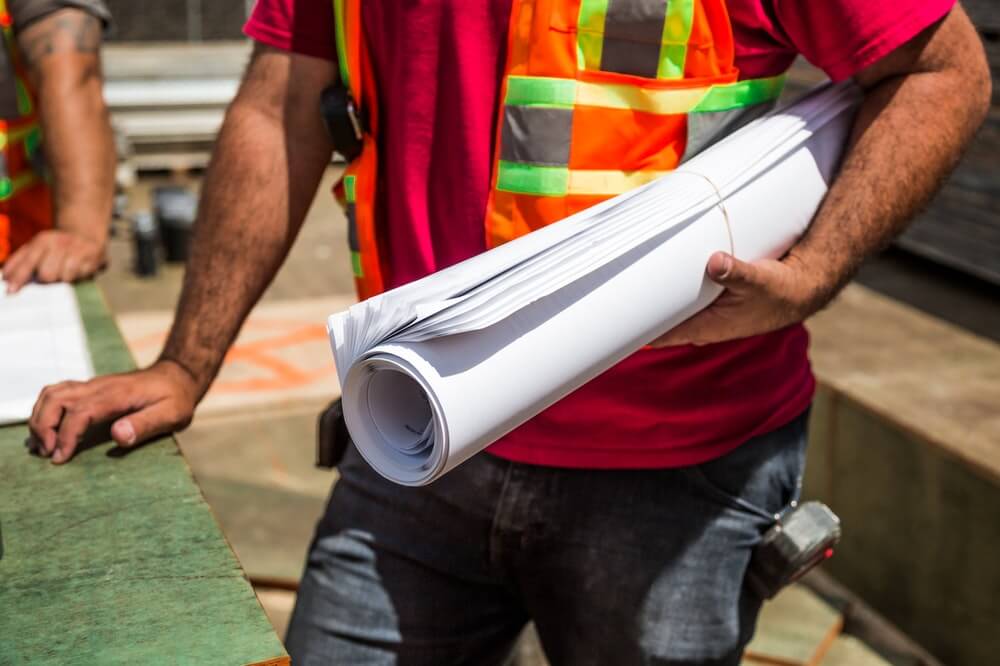DIY or Not: When to Hire a Contractor and Why

Homeowners have plenty of little projects around the house, and they are more used to getting their hands dirty with home renovations or maintenance of their surroundings. Not to mention, today’s globalised economy makes it very easy to purchase specialised building materials and tools and to find instructions on how to use them.
Because of these circumstances, it’s no wonder DIY projects are so popular! You can find countless tutorials and guides on building, repairing, or maintaining projects. Creating something by yourself gives you a feeling of accomplishment – but it’s crucial to know your limits and when to seek expert advice and help.
For large and more extensive home projects like a sports court or a new pool, getting a contractor on board helps you avoid costly mistakes and achieve the desired result.
Big Ideas Need Big Experience
It’s relatively simple to start a small project like building a raised garden bed, a fence, small structures around the house, or simple things that don’t need to comply with safety standards. However, once you have a bigger idea, it may be time to consider hiring a contractor.
Here are the most important benefits you get when hiring professionals for bigger home improvement projects.
Budget
Hiring a contractor means paying for their experience, time, and expertise. You simply inform them about the results you want to achieve within your budget, and they will suggest the best solution for your project.
For an amateur, research alone can take a lot of time, and you also might not have access to all the available options. By doing it yourself, you could miss out on the most affordable solutions.
Safety
One of the most important benefits of hiring a contractor is the prospect of safety. Professionals are aware of industry practices when it comes to safety standards and they also have the means to test compliance. DIY projects are fun and can potentially save you money but putting yourself and others at risk may not be a worthy trade-off.
Time Management
If your project is time-sensitive, hiring a contractor will ensure that the project is finished on time. Professionals are aware of potential complications and know how to avoid them. During a construction project, several things can go wrong. DIYers often learn this the hard way. It’s easy to underestimate the complexity of a project especially if you haven’t done it before.
Tools Needed
Large projects will likely require specialised tools that may be expensive to rent or purchase. Excavations, for instance, should only be done by an experienced contractor. They will have the right equipment to achieve the needed result without damaging the site and surrounding areas.
Licenses and Permits
Extensive projects around your home may also require approval from your local city or town council. In addition, many types of constructions require a permit to perform. Contractors have experience applying for and following these measures, and hiring them can potentially help you save costs on these aspects of the construction process.
Lending a Hand with the Small Things
Smaller DIY projects for the home are something many owners enjoy doing in their free time. It’s not only rewarding to have a hands-on activity, but you can make your home more welcoming, better-looking, and more practical.
One can do simple tasks like staining a rail, painting a wall, or building a raised bed for your garden by watching tutorials or browsing around the hardware store. However, more complex projects need a professional’s input. Building a deck, putting in a walking path, adding a garage or a gazebo to your backyard are all fantastic examples of DIY you shouldn’t tackle by yourself.
What to Look for In A Contractor
Depending on the type of project you want to complete, it may be ideal to get in touch with specialised contractors. For example, if you plan to build a new pool, you have to look for companies that do excavations. In contrast, you might need to talk to a retaining wall contractor if you’re interested in installing a new driveway.
If you decide to engage a contractor for part of your home improvement project, or the entire job, the following checklist can help you find a suitable contractor:
- Licenses and certifications: a license is proof of reliability and shows permission by related officials. A licensed company would not risk losing its right to provide services.
- Liability insurance: any project will have certain risks of complication, damage, or injury. Contractors should protect their clients through liability insurance policies.
- Experience: If your contractor has experience with the type of project you hire them for, it can translate to fewer risks, as well as faster and better work.
- Customer reviews: one of the most reliable indicators of a company’s quality of service is how well they are rated on the market.
- Locality: It’s best to work with local companies since they know the best distributors around. You will save money on transportation, and they are available for future maintenance or repairs.
- Portfolio of projects: ask for pictures and presentations of similar work the contractor has done.
- References: is the contractor well-known amongst its peers and industry? Finding good references from other customers is a valuable indicator when hiring a contractor.
- Communication style: choose a contractor who can transparently explain the project details.
As you make a shortlist of eligible contractors, ask for cost estimates and briefly discuss the project with them. Speaking to the representative of a company can help you decide who to go with after considering all other factors.
No Project Too Big or Small
Thorough planning and anticipating complications are some of the best approaches when doing a home improvement project. The success of your project depends directly on how well-informed you are and how well you know your limits.
It’s best to get in touch with a contractor before any project that goes beyond minor cosmetic tasks, even if only for advice. For large projects such as excavation work, don’t hesitate to contact the experts at TFR Construction in Melbourne.
Recent Posts
A Parcel for the Picking – Things to Consider When Buying Land for Your Home
Selecting the proper parcel of land might be challenging but approaching the task with the correct knowledge makes it worthwhile.
Stone Landscaping: Adding Statement Stone and Boulders to Your Landscape
Stone landscaping is low maintenance, sustainable, and extremely versatile. Here is a realistic view of the main pros and cons of stone landscaping.
5 Ways to Beautify Your Sleeper Retaining Walls
In this blog post, we examine how you can combine looks and function with the latest designs of retaining walls available today.
How Sleeper Retaining Walls Can Help with Property Water Drainage Systems
We take a closer look at why retaining walls can be a fantastic solution for redirecting water around the house and protecting your foundation.
What Is a Commercial Contractor?
Contractors who work on commercial buildings have the know-how, expertise, and certifications to handle commercial construction work. But what exactly is a commercial contractor, and do you need one for your next project? Read on to find out if a commercial contractor is right for you.
Recent Posts
A Parcel for the Picking – Things to Consider When Buying Land for Your Home
Selecting the proper parcel of land might be challenging but approaching the task with the correct knowledge makes it worthwhile.
Stone Landscaping: Adding Statement Stone and Boulders to Your Landscape
Stone landscaping is low maintenance, sustainable, and extremely versatile. Here is a realistic view of the main pros and cons of stone landscaping.
5 Ways to Beautify Your Sleeper Retaining Walls
In this blog post, we examine how you can combine looks and function with the latest designs of retaining walls available today.
How Sleeper Retaining Walls Can Help with Property Water Drainage Systems
We take a closer look at why retaining walls can be a fantastic solution for redirecting water around the house and protecting your foundation.
What Is a Commercial Contractor?
Contractors who work on commercial buildings have the know-how, expertise, and certifications to handle commercial construction work. But what exactly is a commercial contractor, and do you need one for your next project? Read on to find out if a commercial contractor is right for you.





